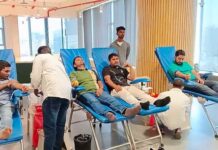Plans to add 14 Reach hospitals at an outlay of Rs. 1,800 crore in 2 years
Apollo Hospitals plans to add at least 14 Reach Hospitals in rural regions at an investment of Rs.1,800 crore by 2016, and more in the coming years.
One of the benefits of tapping into the rural areas is that the cost of setting up infrastructure is lower by about 25 per cent, compared with metros, Chairman Prathap C Reddy told Business Line .
The company’s annual report for the year ended March 31, 2004 had mentioned about its focus on rural expansion.
“Despite the ability and the willingness to pay for quality healthcare services, patients in these areas are forced to opt for moderate or sub-standard facilities for lack of a better alternative. These catchment areas can prove to be a low hanging fruit for healthcare service providers who are able to offer quality healthcare services with excellent clinical outcomes,” the report said. Apollo had earlier said it had received board approval to invest Rs. 2,100 crore for expansion over the next three years.
Government support
Talking about the Reach initiative, Reddy said: “First for the patient, the travel expenses are reduced.” Further, the reduced development cost helps the hospital focus more investments into patient care.
“We are asking for the same status as the IT sector . In IT, they (the Government) give cheap land and tax breaks. And look at how much the sector has achieved for the country. We can also do similar things in healthcare if they give land.”
Reddy, who was celebrating 15 years of India’s first successful liver transplant, which wasdone at an Apollo Hospital, also said there was an urgent need for increasing awareness on organ donation. The Indian Department of Posts released a commemorative stamp on the occasion.
Ratio disparity
Reddy said India’s record in terms of organ donation is very poor compared with global levels.
In Spain there are 32 organ donations per million, in the US 25, the UK 16 and 3 per million in Mexico. As compared to this, the figure for India stands at only 0.6 per million.
Ravi Shankar Prasad, Minister of Communications and IT, who launched the commemorative stamp, also called attention to the problem of illegal organ trading and urged the healthcare industry to work on curbing the same.
The minister also said there was an urgent need for using digital infrastructure in healthcare for reducing healthcare costs and making them accessible to the common man. Business Line























